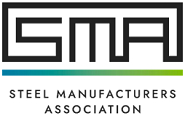Market Data

February 1, 2022
Bell: Carbon Rules Must Not Penalize U.S. Steelmakers
Written by David Schollaert
While the United States and the European Union have been working to resolve their dispute over punitive tariffs on steel and aluminum and re-establish historical transatlantic trade flows, their focus has shifted away from Section 232 duties and towards a carbon-based sectoral arrangement.
![]() The plan: to negotiate a global agreement to address carbon intensity and steel overcapacity. Though still in its early stages, the idea is that both jurisdictions will align on ways to measure the life-cycle emissions from the steel and aluminum sector and place restrictions on high-emitting imports from other nations.
The plan: to negotiate a global agreement to address carbon intensity and steel overcapacity. Though still in its early stages, the idea is that both jurisdictions will align on ways to measure the life-cycle emissions from the steel and aluminum sector and place restrictions on high-emitting imports from other nations.
While the two sides have found mutual ground on tariffs – replacing Section 232 with a tariff rate quota on European exports to the United States – they remain divided on how to regulate carbon intensity. The U.S. steel industry is strongly opposed to a carbon border adjustment mechanism (CBAM) that would penalize U.S. producers.
Philip Bell, president of the Steel Manufacturers Association, said he doesn’t have a lot of information from Commerce or the United States Trade Representative (USTR) regarding their progress – noting it’s very early in the process – but was adamant that U.S. steelmakers and manufacturers should not have to pay a penalty when it comes to carbon. “Whatever we do on carbon, we must realize that we should not penalize American steelmakers or American manufacturers because of our superior environmental stewardship and our already low CO2 intensity,” he said.
Though he wasn’t clear on what the trade policy should look like, he did argue that it’s the countries producing “dirty” steel that should pay a premium for access to the marketplace.
“We shouldn’t tax domestic steel producers on carbon,” said Bell. “In fact, a lot of the burdensome regulations that you see already serve as a tax on steelmakers and manufacturers. We just need to look for ways to level the playing field.”
Bell expects this to be an uphill battle, as there’s little political will in the U.S. for any kind of carbon tax or border adjustment. “This is going to be hard, and we don’t have a lot of data yet, but we need to enter into these discussions very carefully, because we shouldn’t penalize domestic steel producers,” he said.
By David Schollaert, David@SteelMarketUpdate.com







